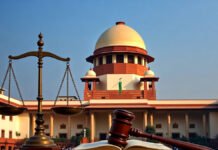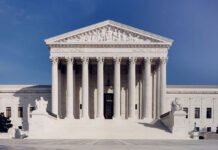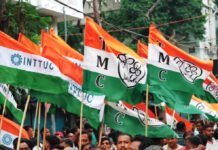INVC NEWS
New Delhi – The Ayodhya Ram Janmabhoomi-Babri Masjid dispute remains one of the most significant legal cases in Indian history. Spanning centuries of religious tension, the issue involved the contested land in Ayodhya, where both Hindu and Muslim communities laid claim. The landmark Supreme Court decision in November 2019 finally resolved the matter, tilting in favor of the Hindu parties. Chief Justice of India (CJI) DY Chandrachud, who was part of the five-judge bench responsible for delivering this historic verdict, recently reflected on the case, acknowledging how deeply faith intersected with legal adjudication.
The Supreme Court’s Verdict on the Ayodhya Dispute
The Ayodhya verdict, delivered on November 9, 2019, concluded over a century of dispute regarding the land where the Babri Masjid once stood. The Supreme Court’s judgment favored the construction of a Ram temple on the disputed land, while simultaneously allotting a separate plot of land for the Muslim community to construct a mosque. This balanced approach sought to bring a peaceful resolution to a matter that had long caused societal division and violence.
The bench, which was presided over by then CJI Ranjan Gogoi, included CJI DY Chandrachud, and Justices SA Bobde, Ashok Bhushan, and S Abdul Nazeer. After deliberating for over three months, the court’s decision was seen as an attempt to restore communal harmony, while acknowledging the historical and religious significance of the land for both Hindus and Muslims.
CJI DY Chandrachud’s Reflections on the Ayodhya Judgment
During a recent speech in his native village of Kanhersar in Maharashtra’s Khed Taluka, CJI DY Chandrachud shared personal insights on the challenges faced during the Ayodhya case. He spoke of his faith, explaining that, at one point, he prayed for divine intervention in resolving the matter. According to CJI Chandrachud, the dispute was so complex and sensitive that, despite legal arguments and evidence, finding a solution seemed elusive. He expressed his belief that divine guidance played a role in the case’s resolution, underscoring how deeply personal faith can intersect with public duty.
The CJI stated that he often prays for guidance in difficult cases and that the Ayodhya dispute was no exception. His reflections reveal the inner struggles that even the highest-ranking judicial figures may experience when tasked with resolving deeply contentious legal matters. As he candidly explained, “I sat before the deity and told him he needs to find a solution.”
Legal and Social Implications of the Ayodhya Verdict
The Ayodhya verdict is a monumental example of how India’s judiciary has had to navigate complex cultural and religious issues. The case involved centuries of legal battles, archaeological surveys, and societal unrest. In their final ruling, the justices weighed not only historical records but also the broader impact the decision would have on India’s social fabric.
In favoring the Hindu claim, the Supreme Court relied on historical evidence suggesting the site was the birthplace of Lord Ram, and acknowledged that the demolition of the Babri Masjid in 1992 was an unlawful act. However, by allocating land to the Muslim community for the construction of a new mosque, the court demonstrated a commitment to fairness and reconciliation, attempting to bridge the divide that had long polarized the nation.
Faith as a Guide in Legal Adjudication
CJI Chandrachud’s recent comments highlight an often overlooked aspect of the judicial process—faith. While judicial decisions are bound by law, evidence, and reason, the Ayodhya case underscores the role that personal beliefs and spirituality can play in how judges approach their duties. His invocation of faith during the case resonates with many who understand the moral and emotional weight that judges carry, especially in matters as sensitive as the Ayodhya dispute.
CJI Chandrachud’s remarks reflect not only his individual perspective but also the broader reality that legal adjudication, especially in cases that deeply affect cultural and religious identities, can be as much about spiritual reflection as it is about intellectual rigor. His acknowledgment of prayer as part of his decision-making process does not suggest a departure from judicial responsibility but rather highlights the human dimension of those tasked with interpreting and applying the law.
















